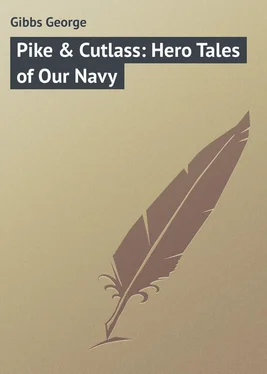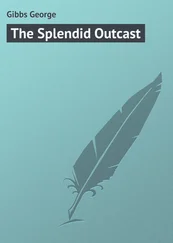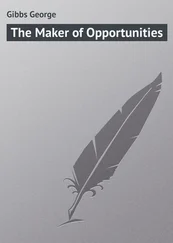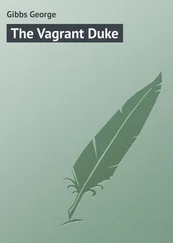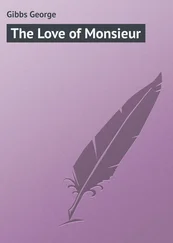George Gibbs - Pike & Cutlass - Hero Tales of Our Navy
Здесь есть возможность читать онлайн «George Gibbs - Pike & Cutlass - Hero Tales of Our Navy» — ознакомительный отрывок электронной книги совершенно бесплатно, а после прочтения отрывка купить полную версию. В некоторых случаях можно слушать аудио, скачать через торрент в формате fb2 и присутствует краткое содержание. ISBN: , Жанр: foreign_prose, на английском языке. Описание произведения, (предисловие) а так же отзывы посетителей доступны на портале библиотеки ЛибКат.
- Название:Pike & Cutlass: Hero Tales of Our Navy
- Автор:
- Жанр:
- Год:неизвестен
- ISBN:http://www.gutenberg.org/ebooks/42138
- Рейтинг книги:3 / 5. Голосов: 1
-
Избранное:Добавить в избранное
- Отзывы:
-
Ваша оценка:
- 60
- 1
- 2
- 3
- 4
- 5
Pike & Cutlass: Hero Tales of Our Navy: краткое содержание, описание и аннотация
Предлагаем к чтению аннотацию, описание, краткое содержание или предисловие (зависит от того, что написал сам автор книги «Pike & Cutlass: Hero Tales of Our Navy»). Если вы не нашли необходимую информацию о книге — напишите в комментариях, мы постараемся отыскать её.
Pike & Cutlass: Hero Tales of Our Navy — читать онлайн ознакомительный отрывок
Ниже представлен текст книги, разбитый по страницам. Система сохранения места последней прочитанной страницы, позволяет с удобством читать онлайн бесплатно книгу «Pike & Cutlass: Hero Tales of Our Navy», без необходимости каждый раз заново искать на чём Вы остановились. Поставьте закладку, и сможете в любой момент перейти на страницу, на которой закончили чтение.
Интервал:
Закладка:
The first gray streaks of dawn saw Paul Jones upon the poop of the “Serapis,” looking to the leeward, where the “Richard” lay rolling heavily. Her flag, shot away again and again, had been replaced and floated proudly from its staff. Lower and lower she sank into the water, mortally wounded, a heavy swell washing in at the lower gun-ports. At length, heaving her stern high in the air, her pennant fluttering a last defiance to the captured “Serapis,” she slowly disappeared, dying grandly as she had lived.
After Pearson’s release, the British government offered ten thousand guineas for Paul Jones, dead or alive. Forty-two British frigates chased him and scoured the Channel; but Jones passed within sight of them, the American flag flying at the mast, and reached France in safety, where he became the hero of the hour. And so long as the Stars and Stripes fly over American war-ships will the men who know hold up as their ideal of a dogged warrior and gallant seaman the hero of Flamborough – Paul Jones.
THE TERRIER AND THE MASTIFF
The first of the great American captains to give his life to the cause of liberty was Nicholas Biddle. And the action in which he lost it is the finest example of daring and hardihood in the little known pages of naval history. His part in that glorious action must ever remain unknown as to its details since but five out of his crew remained alive to tell of it, and we are chiefly indebted to the British accounts for the information which has been handed down.
Nicholas Biddle began his naval career by being shipwrecked on a desert shoal at the age of thirteen. But being rescued, with his four companions, at the end of two months, his ardor was so little dampened that as soon as opportunity offered he immediately went forth in search of further adventures on the sea. A war between England and Spain being imminent, he went to London, and succeeded in getting a midshipman’s warrant on the ship of Captain – afterwards Admiral – Sterling.
But just before the declaration of independence of his own country, a voyage of discovery to the North Pole was proposed by the Royal Geographical Society, and this opportunity seemed to hold forth infinitely more possibilities for advancement than the daily port routine of a British frigate of war.
So, Admiral Sterling refusing Biddle’s mild request to be transferred to one of the vessels, the young man took it upon himself to doff his gold-laced uniform and present himself upon the “Carcase” in very shabby sailor clothes, upon which he was forthwith entered upon her books as a sailor before the mast. He was in glorious company, though, for Horatio Nelson – afterwards to be the greatest admiral England has ever known – shared his humble lot as a jacky, although his prospects in the service were more brilliant than Biddle’s. The expedition, having accomplished its purpose, returned to England in 1774, both young Nelson and Biddle having been appointed coxswains for meritorious service.
When hostilities in the United States began, Biddle, of course, resigned from the British navy and offered his services to the Continental Congress. His first commission was the command of the “Camden,” a galley fitted out by the State of Pennsylvania for the defence of the Delaware River. He was then made a captain in the naval service, and took command of the “Andrew Doria,” of fourteen guns and one hundred and thirty men.
Just before Commodore Hopkins’s fleet hoisted anchor, Biddle had an opportunity to show his intrepidity in a very personal way. Two men who had deserted from his vessel had been taken and were placed in prison at Lewistown. Biddle sent an officer and a squad of men ashore to bring them off. But the officer returned to the ship and reported that the deserters had joined with the other prisoners, and barricaded the door, swearing that no man alive would take them. Biddle put on his side-arms and, taking only a young midshipman with him, went at once to the prison. The door was tightly barred from the inside, and the prisoners, led by one of the deserters named Green, shook their fists and pointed their weapons at him. Some of the more venturesome of the townsfolk, who only needed a resolute leader, now smashed down the door at the naval officer’s directions, and Biddle, drawing both his pistols, quickly stepped within the opening. Green stood in front of his ill-favored companions, his eye gleaming villanously down the barrel of his flint-lock. Without moving his eye from the man, and planting himself squarely in the doorway, Biddle said, steadily, —
“Now, Green, if you don’t take good aim, you are a dead man!”
There was a moment’s pause, after which the pistol fell a little, and finally, under the resolute attitude of his captain, the fellow broke down. He was completely awed, and at Biddle’s command dropped his pistol to the floor and allowed himself to be conducted to the ship. Their leader cowed, the remainder of the prisoners permitted the Lewistown militia, who had recovered from their fright, to come in and make them fast again.
This incident had its moral effect upon his men, and never again, when they learned to know him, was Biddle troubled with disaffection among his crew. The fury with which they went into the fights that followed showed how much he was a man after their own hearts.
After Commodore Esek Hopkins’s unsuccessful encounter with the British fleet, the “Andrew Doria” put to sea and cruised off the coast of Newfoundland. Biddle captured a prize laden with arms and ammunition, which he carried to port, where they greatly strengthened Washington’s army, which was badly in need of supplies of all kinds. He captured a transport and four hundred British soldiers, and made a great number of merchant prizes. He would have taken more, but he only had five men left aboard to take the “Doria” back to Philadelphia.
The Congress had authorized the building of several new frigates, and one of these, the “Randolph,” of thirty-two guns, was just off the stocks. Biddle was made commander of her, and set immediately about finishing her and making her ready for sea. He had great difficulty in getting a crew, as privateering, where the prizes were greater and ship actions less frequent, proved more attractive to the adventurous spirits of the day. Congress, however, drafted a number of men from the army, and the crew was completed by the enlistment of volunteers from among the prisoners taken on prizes. After many difficulties with this motley crew, Biddle at last got to sea in February, 1777.
The men of his old crew were with him to a man, but many of the volunteers were shoal-water sailors, and his army recruits didn’t know a sheet from a buntline. So when he ran into a Hatteras gale a few days out, the “Randolph” carried away her masts, and was altogether so uncomfortable a wreck that the volunteers mutinied, and Biddle had a hard time getting into Charleston harbor. He succeeded at last in refitting and in instilling some of the man-of-war spirit into his crew, sailing at last for the West Indies. Then his luck turned for the better, and he sighted the English ship “True Briton,” twenty guns, convoying three merchantmen. Without accident he succeeded in taking them and in bringing all four prizes safe and sound into Charleston harbor. This was the first capture of the navy in the South, and, as the prizes were again liberally supplied with arms, the capture was doubly welcome. So much did Congress appreciate this affair that they had a medal struck off in Biddle’s honor. The British hearing of this exploit of the “Randolph,” sent a fleet south, and succeeded in blockading her at Charleston for a time.
The State of South Carolina got ready a fleet in the hope of raising the blockade, but before they could get to sea the Englishmen had disappeared.
Читать дальшеИнтервал:
Закладка:
Похожие книги на «Pike & Cutlass: Hero Tales of Our Navy»
Представляем Вашему вниманию похожие книги на «Pike & Cutlass: Hero Tales of Our Navy» списком для выбора. Мы отобрали схожую по названию и смыслу литературу в надежде предоставить читателям больше вариантов отыскать новые, интересные, ещё непрочитанные произведения.
Обсуждение, отзывы о книге «Pike & Cutlass: Hero Tales of Our Navy» и просто собственные мнения читателей. Оставьте ваши комментарии, напишите, что Вы думаете о произведении, его смысле или главных героях. Укажите что конкретно понравилось, а что нет, и почему Вы так считаете.
